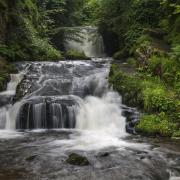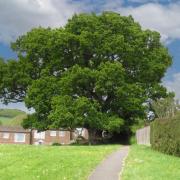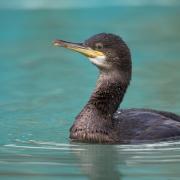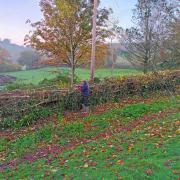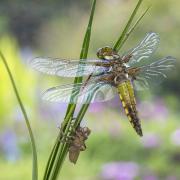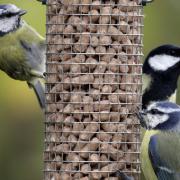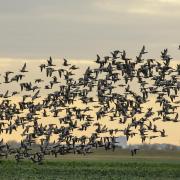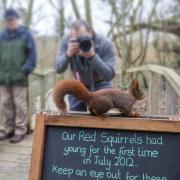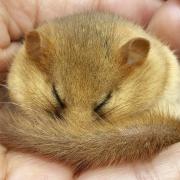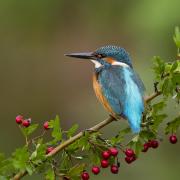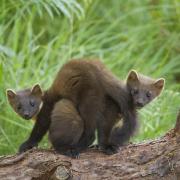This month our columnist has some handy tips for helping birdlife survive a tough time of the year
February can be the bleakest, coldest month of the year and though the weather lore of our ancestors proclaimed that snow or rain in this short month presaged a fine summer and good harvest, for wildlife it can be a make or break month, particularly for garden and hedgerow birds.
Winter months of snow, frosts and drenching rains can take a fearful toll of bird life. Insect life is virtually non-existent, while hedgerow fruits have long vanished or been destroyed and for ground feeding birds, such as thrushes and robins, iron-hard ground spells disaster. A sour, bitter February may prove the final straw for birds which have struggled to survive through December and January.
This is where garden feeding is of such vital importance. The provision of the correct food and water plays a crucial role in the survival of a wide range of garden and hedgerow birds, but it is essential that only good quality food is employed, geared to different species.
High energy food is essential in cold weather to enable birds to maintain fat levels and to survive bitter cold at night. Whole peanuts provide a source of fat and are well liked by sparrows, nuthatches, great spotted woodpeckers and greenfinches, but it is essential to purchase them from a reputable source as they can contain a toxin which is fatal to birds. Never, by the way, use salted or roasted peanuts.
If you want to attract goldfinches and siskins then the answer is nyjer seeds. These tiny black seeds with a high oil content are a favourite with these attractive birds, but they do require a special feeder. I have one such hanging on a fence in front of my office window and have seen up to a dozen or more goldfinches queuing up to take their fill of the seeds.
Fat balls are also a valuable food source for the winter months, but it is essential to remove the net bags before placing them in a container as birds can all too easily find themselves trapped in the mesh. You can, of course, make your own fat cakes from a mixture of seeds, nuts, oatmeal and cake mixed with melted lard or suet. Give the mixture a good stir and then pour it into a half coconut shell which can be suspended from a bird table. Another idea is to cram this fatty mixture or simply plain suet into crevices or holes in tree trunks or posts as this will attract wrens, nuthatches and woodpeckers. Another useful supplement during cold weather is cooked, but unsalted, white or brown rice.
Grounds feeders, such as thrushes and hedge-sparrows, can present a problem if cats are present. Food can be scattered on grass or a feeding tray, but it needs to be kept well away from cover where a cat may lurk. Dogs, too, as I know all too well, are only too eager to gobble up seed or any bird food they can reach. Ground feeding can also attract woodpigeons, collared doves and, if you are near a shoot, pheasants, all of them birds which tends to bully and drive away more deserving cases.
Apart from the threat posed by hunting cats, sparrowhawks can also prove a menace, particularly if a bird table and feeders are sited in the open. Far better, then, to place the table close to a hedge or large bush into which potential victims can vanish and which also make it difficult for the raptor to manoeuvre.
Sparrowhawks are incredibly bold, as I know to my cost. I have an outside aviary holding a variety of finches and doves and which has been attacked by a hawk on several occasions. Despite the small mesh in the netting, the bird has been able to insert a talon, snatch a victim and eat it alive through the wire.
Grey squirrels can also prove a menace. Agile and bold, they can readily climb bird table supports to take bird food. There is, however, a type of seed or nut feeder which is itself enclosed by a circular wire frame, allowing room for small birds to enter and feed, but which acts as a deterrent to squirrels.
Hygiene is essential. Make sure that any uneaten food on the bird table is removed at regular intervals and clean away droppings. Watch out, too, for the presence of rats which will quickly cotton on to the presence of dropped seeds or other food.
Remember, that you are a lifeline to many species of our native birds and your help and assistance is vital to their future survival.




